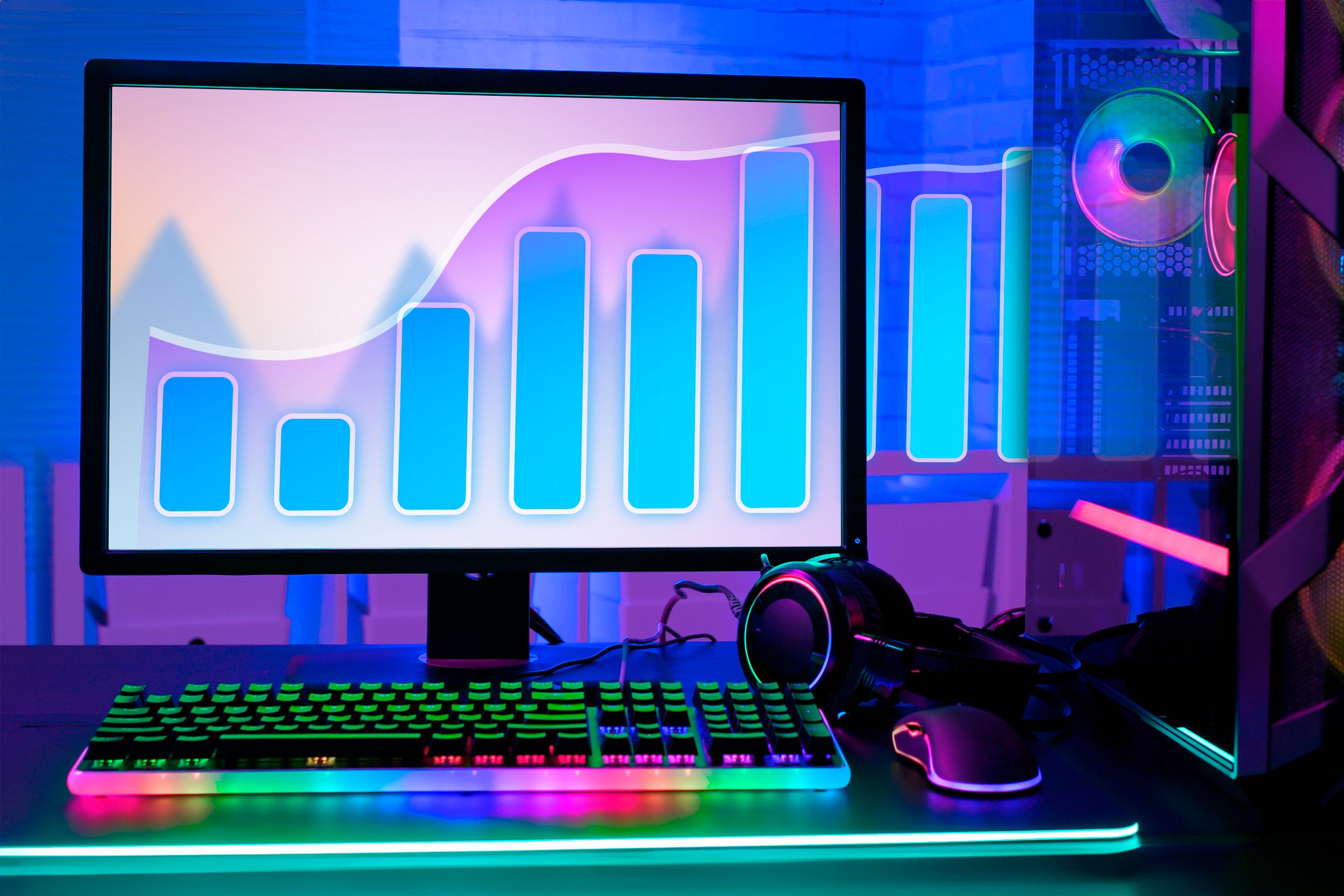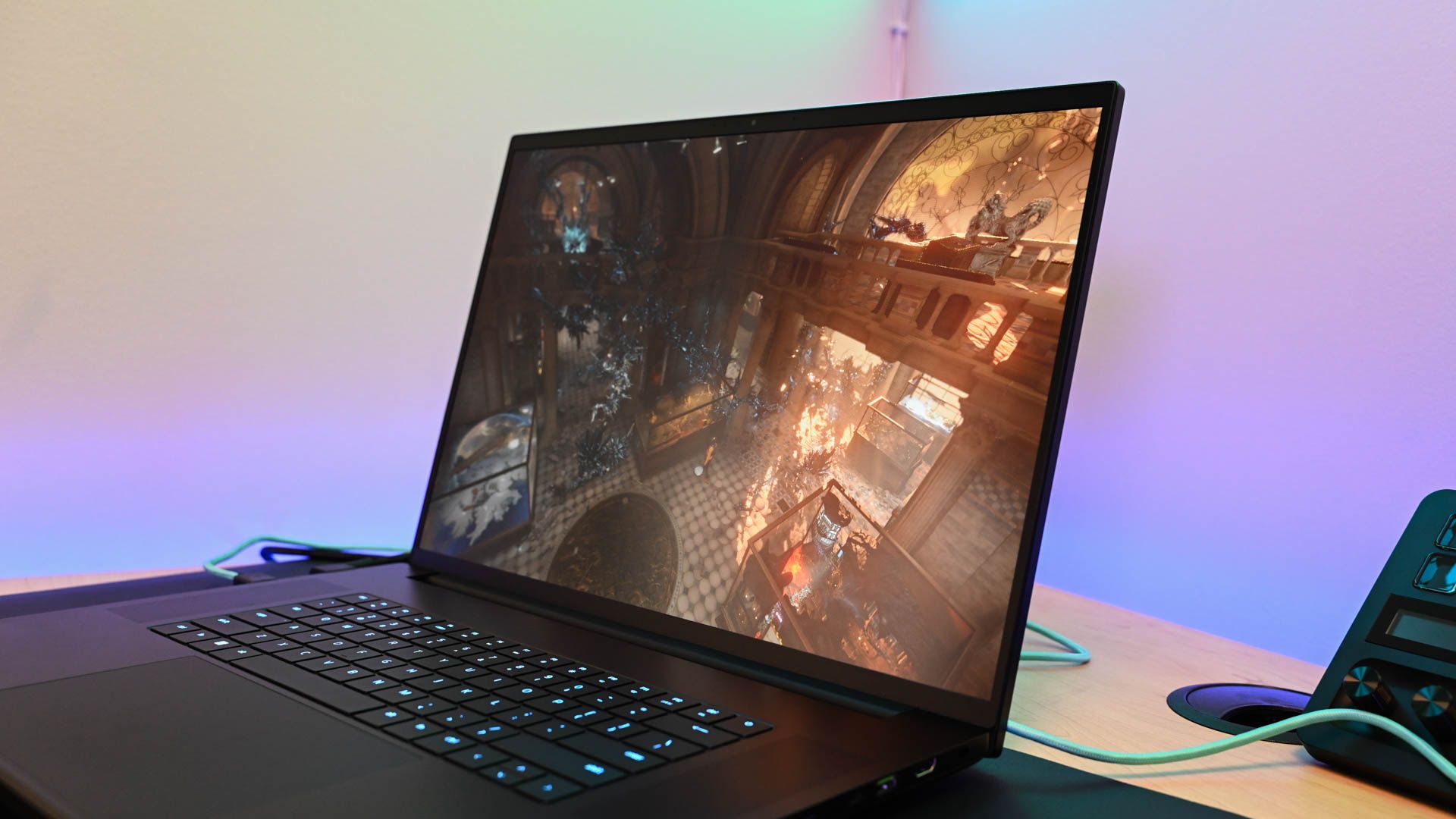
Why Relying on Benchmarks Is Key When Purchasing Computer Components

Why Relying on Benchmarks Is Key When Purchasing Computer Components
Quick Links
- Benchmarks Are Much Easier to Interpret Than Specs
- Real Benchmarks Provide Real Data
- Comparing Specs Across Brands and Generations Is Tricky
- Potential Drawbacks of Benchmarks
Key Takeaways
- Real-world benchmarks are easier to interpret than specs and also provide accurate performance data.
- Benchmarks offer insight into temperatures, power draw, and actual performance.
- Comparing specs across brands and generations can be tricky; benchmarks make it easy and accurate.
Struggling to pick out the parts for your next PC? I know how exhausting comparing specs can be. The good news is that you can end up with a pretty solid PC by relying on benchmarks alone, especially if you’re on a tight budget.
Benchmarks Are Much Easier to Interpret Than Specs
Computer specifications are about as helpful as the ingredients listed on the back of a food item. Specs can tell you what the computer part is “made of” and how it operates, but you still don’t know how well they’ll perform in certain contexts. Just because something looks great on paper, doesn’t mean it’s great in practice.

Hannah Stryker / How-To Geek
Teraflops are confusing , and CPU clock speeds don’t tell the whole story, either. Don’t even get me started on RAM speed and timings . While I could theorize that a CPU with eight cores outperforms an identical model with six cores in video games, benchmarks might show that there’s no substantial difference in most games.
The point is, while PC specs are valuable, they’re also difficult to interpret if you’re not an expert tech geek. The good news is that you don’t have to do that because benchmarks provide an easily understandable performance measurement, and I’m referring to both synthetic benchmark scores and in-game performance.
Amazing writers, forum users, and YouTubers have put in countless hours testing PC parts for you; your job is simply to learn how to read CPU and GPU benchmarks.
Real Benchmarks Provide Real Data
The thing I hate the most about specs is that they’re not even accurate, at least not always. I own an older Ryzen 7 2700X , which supposedly has a maximum boost clock of 4.3GHz. While buying the CPU, I thought that was the frequency that the CPU would run at all the time if I kept it cool, but that’s actually the peak clock speed that the CPU can hit for only a few seconds. I’ve never seen it go above 4.0GHz, regardless of the load and temperature.
Benchmarks also provide excellent insight into what kind of temperatures a component reaches under a full load. If you’re buying a GPU, you can check a particular model to see how its cooling solution stacks up against the competition. In the case of a CPU, a high maximum temperature is a sign that you might want a good aftermarket cooler .
Power draw is another spec that isn’t necessarily the same as on the spec sheet. Both CPUs and GPUs can draw more power compared to what the box suggests, especially if the manufacturer only publishes the TDP . Also, you can increase the maximum power limit on graphics cards so that they get more juice to run at a higher clock speed. This means you should account for the real maximum power draw without overspending on your PSU .
Comparing Specs Across Brands and Generations Is Tricky
If you’re comparing CPUs across different generations and manufacturers, the specs can’t tell you which model performs better. For instance, the AMD Ryzen 7 5700X3D is an 8-core CPU with a maximum clock speed of 4.1GHz and 100MB of 3D cache that does wonders to boost gaming performance.
YouTuber thegamrone tested the Ryzen against the newer Intel Core i3 14100F , which only has four cores that boost up to 4.7GHz and only 12MB of cache, and they found that the two CPUs have near-identical performance in games despite the vastly different specs.
It’s important to remember that you shouldn’t make your purchase decision by looking at a random synthetic benchmark score; they’re sort of arbitrary. Instead, look at benchmarks that are relevant to your use case. I slightly favor CPUs that do better at productivity tasks, even if they did slightly worse in games, because I also use my PC for work. But if you’re building a gaming machine, your primary metric should be how much FPS you’re getting per dollar spent, so a few good in-game benchmarks are a fantastic starting point.
Potential Drawbacks of Benchmarks
While benchmarks provide good insight into how well a computer part performs, they can’t tell the whole story. One of the main drawbacks is that you don’t know what sort of new tech is supported on the component from benchmarks alone.
A good rule of thumb is that newer PC parts are usually the better purchase. Newer PC parts typically feature lower power draws and improved performance across the whole model range, in addition to exciting new features.
For instance, I’d pick the NVIDIA RTX 4060 over the RTX 2080 if the price was within ~$40. While both cards have similar in-game performance, the RTX 4060 draws less power and supports DLSS 3.5 Frame Generation, which can boost your FPS significantly in supported games thanks to AI. Staying on the topic of DLSS, NVIDIA cards might be better than comparable AMD cards because FSR is still playing catch-up with previous-gen DLSS.
Another drawback of benchmarks is that test results might not always be 100% accurate. If the person doing the benchmark didn’t do their due diligence when testing and didn’t account for motherboard settings, clean driver installs, etc., the numbers could be somewhat inaccurate. That’s why you should always check several different benchmarks to see if the results hold up across the board.
Ultimately, the performance of a component in the specific software you want to use is more important than anything else. So it’s worth looking for well-designed benchmarks from a trusted outlet, with transparent testing, to get a clear idea of where your money will go.
While you shouldn’t ignore specs altogether, benchmarks provide a lot of data on a CPU’s performance, especially if you compare it to similar models that you’re considering. The best part is that they don’t require much expertise, so it’s pretty easy to make a good purchase decision based on FPS and price alone.
Also read:
- [New] Gamers' Choice Top Software for Live Scenes
- [Updated] Enthralling Listeners From the Outset Intro Insights for 2024
- [Updated] The Hidden World Exploring VLC Player Extras
- ABBYY FineReader - Wesentliches Tool in Der Dokumentenverarbeitung Und Analyse
- Discover the Seven Key Factors Driving Apple Vision Pro's Popularity on Reddit, Revealed in a New ZDNet Analysis
- Download & Install: Official RealTek High-Quality Audio Driver for Windows 10 Made Easy
- Download and Setup AOC Graphics Card Drivers on Windows 11, 10, or 8
- Find and Install Your HP Printer's Driver: A Step-by-Step Tutorial
- Free Audio Management Tools for Your HP Devices, Effortless Download Process
- Game On Like Never Before - Get the New Driver Update for Your NVIDIA GeForce RTX 2080 Ti Today!
- Get Your [Free Download]: Wacom Intuos Pro Software for Windows 10 Made Simple
- In 2024, Essential Tools for Creating Dynamic Talking Avatars
- Navigating New Tech Trends with Tom's Hardware Experts
- Quick Download: RealTek Asiode Windows 11 Driver - Simple Installation Guide
- Samsung C460 Drivers: Fast Download and Installation Guide
- Streamline PC Functions - MTK USB for Windows
- Transform Your Watching Experience Adding Captions to Windows Media Player
- Title: Why Relying on Benchmarks Is Key When Purchasing Computer Components
- Author: Richard
- Created at : 2024-12-08 22:13:29
- Updated at : 2024-12-12 20:59:15
- Link: https://hardware-updates.techidaily.com/why-relying-on-benchmarks-is-key-when-purchasing-computer-components/
- License: This work is licensed under CC BY-NC-SA 4.0.